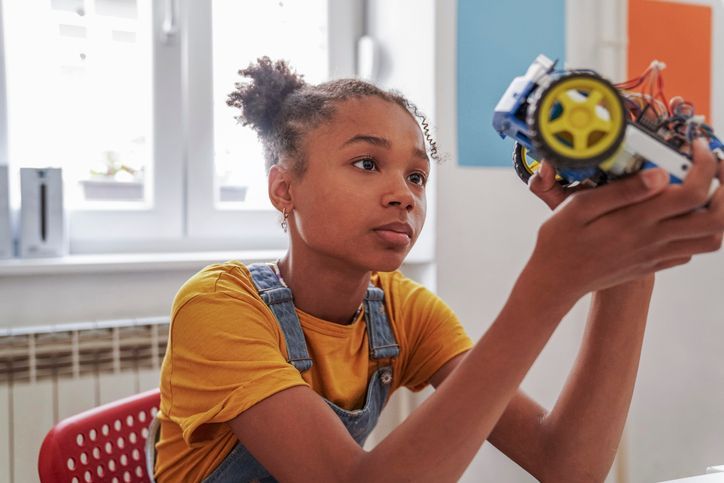This page is licensed under Creative Commons under Attribution 4.0 International. Anyone can share content from this page, with attribution and link to College MatchPoint requested.
How (And Why) to Do a Self-Directed Project
As summer approaches, many students begin making plans for camps, internships, and enrichment programs. But one of the most impactful and flexible options is often overlooked: the self-directed project. For motivated students, especially those considering highly selective colleges or competitive majors like business, engineering, or computer science, a self-directed project is not just a creative outlet—it’s a strategic move.

Why a Self-Directed Project Matters
Colleges—particularly highly selective ones—are looking for more than just strong grades and test scores. They want students who are intellectually curious, self-motivated, and capable of making an impact. A self-directed project highlights these qualities in a concrete way. When done well, these projects demonstrate initiative, leadership, and a deep engagement with a student’s interests—traits that align with what admissions officers at top-tier schools are seeking.
Self-directed projects also offer a unique opportunity for students to connect their personal interests to their academic or career goals. Whether it’s developing an app, writing a novella, launching a tutoring initiative, or researching a pressing issue, students create tangible outcomes that reflect who they are and how they think.
Choosing the Right Project
At College MatchPoint, we encourage students to start with self-reflection. A project is most successful when it grows out of genuine interest and excitement.
Here are some questions to guide the process:
- Am I truly excited about this topic?
- Can I see myself staying engaged over time?
- What resources or mentorship might I need?
- Does this project align with my goals or values?
- How might this project make a difference for others or myself?
We also recommend applying our i4 Framework—Interest, Involvement, Initiative, and Impact. A strong self-directed project starts with a genuine interest and moves into deeper involvement. As students take more initiative, the impact naturally follows.
How to Launch a Meaningful Self-Directed Project
1. Map Out a Clear Plan
A great idea needs structure to succeed. Begin with a timeline, break the project into manageable steps, and set goals along the way. Use tools like Google Sheets, Notion, or even a good old-fashioned journal to track progress.
2. Find a Mentor or Guide
While not essential, having a mentor can add depth and accountability to a project. A teacher, coach, college student, or local professional can offer guidance and feedback. For students interested in research, this can also mean connecting with a university lab or a program like Lumiere or Polygence.
3. Identify a Tangible Outcome
What will this project produce? It might be a published article, a portfolio, a service initiative, or even a business. Tangible outcomes help students stay focused and give them something meaningful to share in their college applications.
Examples of outcomes:
- Creative work: Submit a short film to festivals or an op-ed to a local paper.
- Digital tools: Create an app or website with clear goals for use or reach.
- Community service: Launch a neighborhood tutoring program or a fundraising event.
- Academic research: Present findings at a symposium or submit to a student journal.
Why Highly Selective Colleges Value Projects Like These
Self-directed projects help students stand out in a crowded applicant pool. They communicate more than just interest—they reflect a student’s engagement, growth, and readiness to contribute to a college community. Especially for competitive majors, these projects show how a student is already thinking and acting like a future scholar or leader in that field.
In a world where test scores are optional and resumes can look similar, your initiative, follow-through, and impact carry more weight than ever.
A self-directed project isn’t just another item to check off for college—it’s a meaningful journey that helps students discover who they are, what they care about, and how they want to contribute. It’s also one of the best ways to build durable skills: time management, communication, self-advocacy, and resilience.
Encourage your student to start small, dream big, and use their summer to take a step toward something that matters to them. Not only will it pay off in the college admissions process—it will help shape the person they’re becoming.


